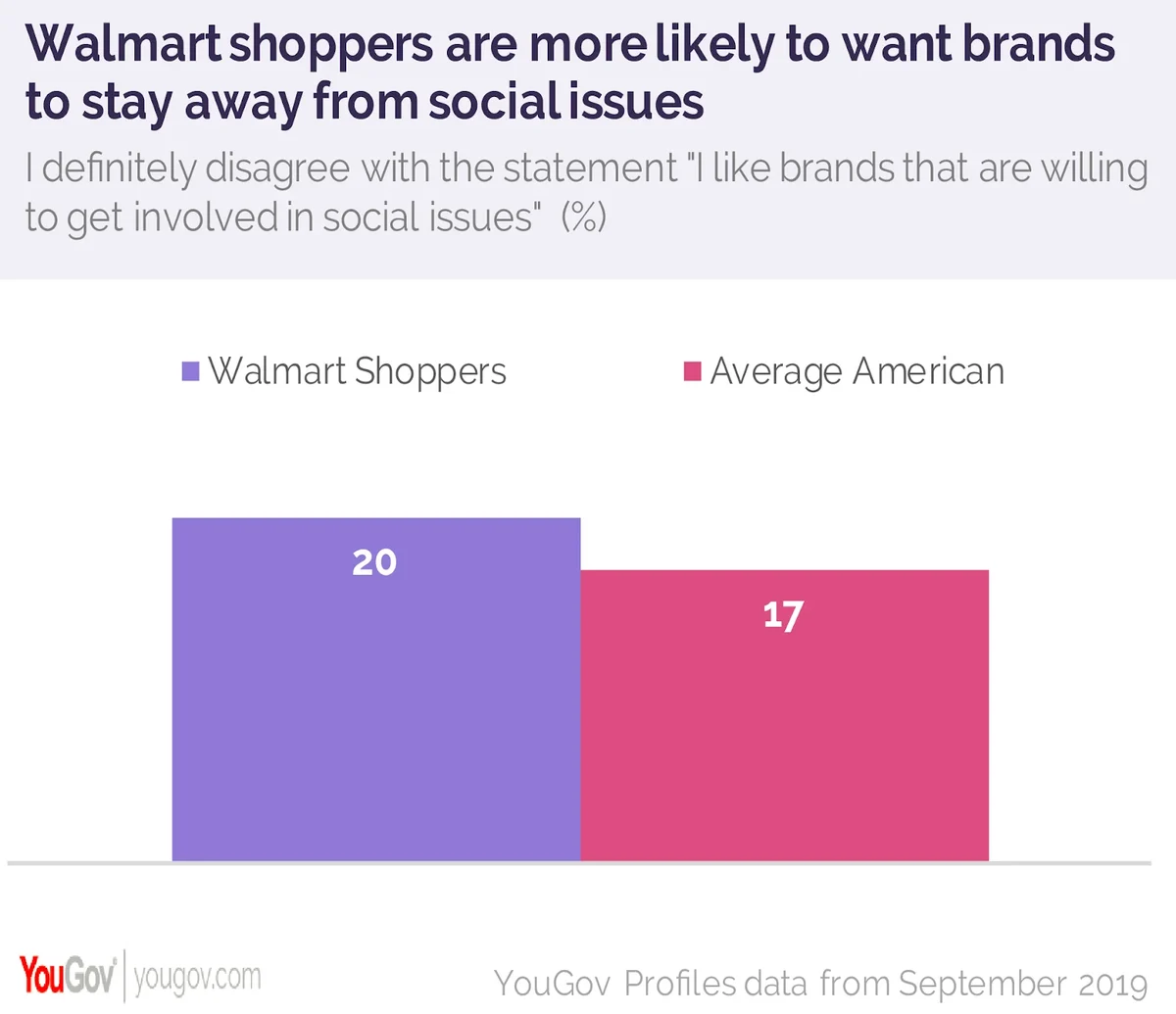The safety of vaping has become a major question in America. Vaping, for the uninitiated, is sort of like smoking cigarettes or marijuana, except that infused oils carry drugs like nicotine and THC into a person’s system rather than smoke.
Several people died from vaping-related illnesses this summer leading several cities and states to issue bans on certain types of vaping-related products, such as e-cigarettes and flavored oils.
Some retailers, notably Walmart, have followed suit and pledged to stop selling products related to vaping.
That decision might not sit well with some Walmart shoppers, according to YouGov Plan and Track data.
But that’s not because Walmart shoppers are die-hard vaping enthusiasts, rather it has to do with core values of some Walmart shoppers whose views tend toward libertarian. Namely, bans aren’t exactly popular with this crowd.
Walmart shoppers are more likely than average Americans, according to YouGov Plan and Track data, to oppose the idea that vaping products should be banned by governments. We asked this question in April to our panel of respondants, which includes more than 20,000 current and former Walmart shoppers.
That’s not to say that Walmart shoppers would all come out against governmental bans, just that they are more likely than the average American to say that they oppose such measures. It’s possible to infer that Walmart shoppers value freedom from too much government intervention into their lives.
This group, however, doesn’t shun regulation altogether. Some Walmart shoppers just seem more reluctant to embrace wholesale bans than they do incremental regulations. When Walmart shoppers answered questions about potential laws around vaping, they were actually more likely than average Americans to support some sort of regulation. In fact, when we asked in June, Walmart shoppers were more likely to say that cities should raise the smoking age to 21 years old. And when we asked in August about limiting the places where people could vape, Walmart shoppers were more likely than other Americans to say that cities should limit where people can vape.
So it seems that there is some nuance to the positions of Walmart shoppers when it comes to vaping. They are less likely to support an all-out ban, but more likely to support some regulation for vaping.
But here’s where Walmart might be concerned about their move: Walmart shoppers are less likely than the average American to appreciate a company that takes a position on a social issue.

By a slim margin (3%), Walmart shoppers say they definitely disagree with the statement: I like brands that are willing to get involved in social issues.
Again, this is not to say that Walmart shoppers are a monolith by any means. Their views are nuanced and complex. But what YouGov Plan and Track data shows is that they’re more likely than the average American to think that bans go too far and that companies shouldn’t take positions on social issues. But because the company has banned the product, which is essentially taking a position on social issues, they may have created a challenge to retaining some of their core customers.







